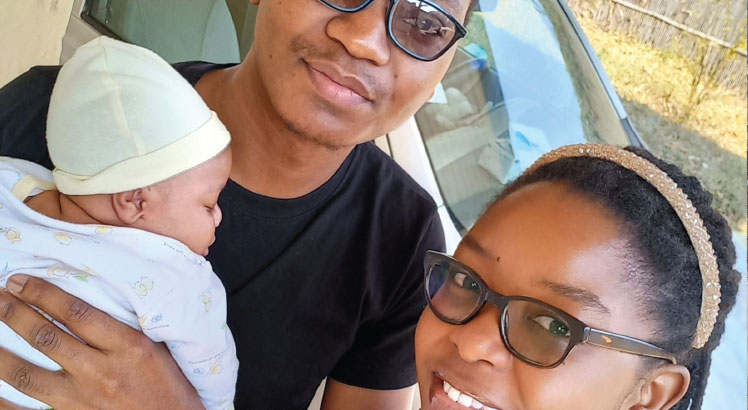Born amid a pandemic
On July 5, while the social media was buzzing and joking about substandard Independence Day decorations in the country’s cities, my wife and I were expecting our first born.
Obviously, the debate over the bizzare décor seen in roundabouts was a remote aside on our to-do list.
Six months before, we had been to the same health facility with fear that we might lose the baby through a miscarriage.

Born later in the night on the 57th anniversary of self-rule, everyone around us had assumed that the baby girl would be an Independence Day child.
The thrill of holding and hearing the first cry of your baby is beyond words. It is also the only cry that puts a smile on a parent’s face—for the next cry will demand your sustained attention.
The reality of how different the newborn baby’s upbringing would be in the wave of the fast-evolving Covid-19 pandemic hit my wife and I while still in hospital.
Due to strict Covid-19 restrictions, no other member of the family apart from the two of us was allowed in.
While the hospital could easily control the traffic, the situation was going to be harder at home where cultural norms and pleasantries are difficult to change, even amid a pandemic.
The Malawian way of life is such that when a child is born, family members will come to see and cuddle the newborn. But we were in the middle of the third wave of the pandemic, so we had to carefully control the arrivals and departures not to offend “our people”.
By August 8, the baby developed a spiking fever. We thought it was a simple condition. We took her to an emergency room where a clinician assessed her and prescribed antibiotics. We returned home. But fever in children is a symptom medics take seriously amid the Covid-19 outbreak.
At first, I guess no one thought a four-week-old baby could have coronavirus and fall sick from it. No wonder, the treatment focused on a likely bacterial cause.
But after 24 hours in hospital, she developed respiratory distress and needed oxygen. She was on oxygen for six days.
Covid-19 only came in the picture after 48 hours in hospital when her fever persisted despite taking antibiotics. This made sense because Covid-19 is caused by a virus which is not expected to respond to antibiotics (bacterial medication).
The Covid-19 test can be discomforting to some adults. For a baby having a flexible swab inserted in its nose to extract fluids for laboratory tests—can be unsettling for parents. We feared for her comfort.
We were later relieved when a health worker took an oral swab—not the nasal alternative—for a retest.
“Why did she have to suffer the nasal swab for the first one?” I asked myself.
Being in hospital with Covid-19 brought with it dynamic shifts in family involvement in patient care.
With all of us were diagnosed with coronavirus, it meant none of the family members could visit or come near us. While this meant more time for us to focus on each other, a lot of people would call and text to check on us.
In these tricky times, we found that the fewer the calls and texts, the better. It gave us more time to focus on our health instead of frequently updating others on how we were doing.
So, we informed few people about our situation. It was less stressful.
While we could not openly speak about it, the frequently asked question was: How did a four-week-old child catch coronavirus?
Few even suggested that we infected the baby—as if that would make us feel better anyway.
Every parent would feel guilty when a baby like ours catches Covid-19 under their care, so telling them that they are responsible for their child’s illness and suffering is inconsiderate.
While there is no book to teach people common sense and courtesy, everyone is expected to realise that most of the usual dynamics have to change with the Covid-19 pandemic still among us.
We might not open our doors until Covid-19 is over and that is okay.
Nursing the baby born and caught in the middle of the pandemic was a gruesome experience I wish no parent has to endure.
My wife and I are only happy that our daughter was discharged 10 days later and she is doing fine.





